














































Front/ Advertising

The Healthcare media range of literature is distributed to 158 Health Districts throughout the UK.
The Publications in the Healthcare media range are distributed free of charge to the general public through outlets comprising of Doctors Surgeries, Citizens Advice Bureaus, Nursing Homes, Registrars and Bereavement Services, Crematoriums, Children’s Centres, Maternity Units, Care Centres/Programmes, Hospices, Charities and NHS Clinics & Hospitals.
(Different titles are distributed to different outlets according to their readership profile - Not all titles are distributed by all outlets mentioned herewith).
The publications aim to provide invaluable advice to readers and are financed through the inclusion of relevant beneficial local advertising.
Bereavement Injury Advice
Making a Will and Funeral Planning
Older Persons Community Care Mobility Advice
Private Healthcare
Regaining Your Independence Relationship Breakdown
Sight & Hearing
Work Related Injuries & Disease / Employment Issues
Pregnancy & Parenthood
Regional GP Appointment Cards
GP Antenatal Appointment Cards
Other products in the Impact range include


Please ask for a copy of the publications of your choice from your local range of outlets. If for any reason they do not hold stock of them please ask them to contact us or indeed feel free to contact us directly on the following links and request a copy of our publications via post or as a digital copy of any of the titles.


0115 944 7306
0115 944 0436


circulation@healthcaremedia.co.uk

www.impactonlife.com
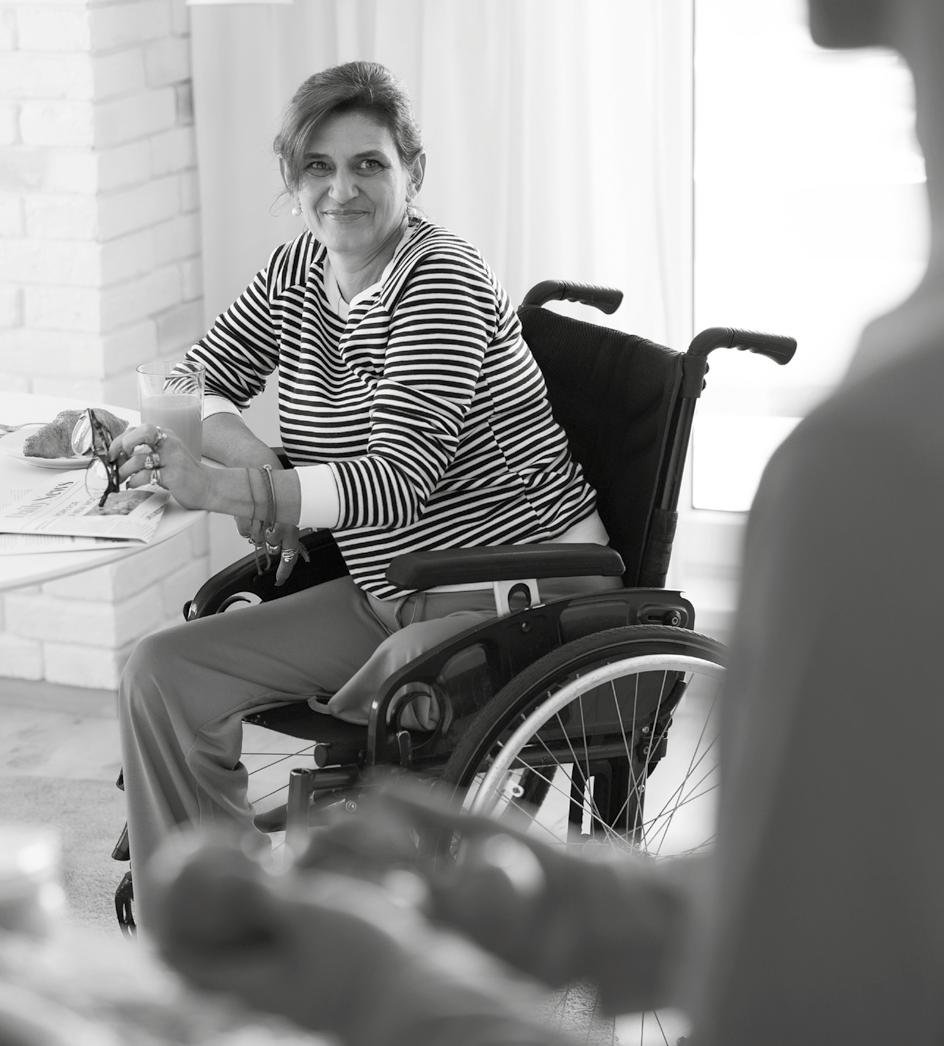
If you are someone with a temporary or permanent disability, this guide is a fantastic starting point to finding out more about ways to enjoy more independence, greater mobility and freedom. It’s packed full of information about the Motability Scheme, as well as using powered scooters, buggies, walking aids and equipment, and finding the right wheelchair for your needs.
You will also find an overview of financial support to which you may be entitled, as well as a handy list of contacts for more information.
116-118 Derby Road, Stapleford, Nottingham NG9 7AD.
For a growing numbers of disabled people, whether still working or retired, being ‘housebound’ is not an option. Community transport services, such as Dial-a-Ride and Shopmobility schemes, and social car schemes run by voluntary organisations, can help solve some travel and shopping problems but, for many, the spontaneity and convenience afforded by the ‘private car’ is essential to leading a full active life.
Whether you want to be able to drive or simply need a practical solution to enable you to travel as a passenger in the family car, Driving Assessment and Training Centres can provide advice and information on vehicles and equipment. Medical, physical and engineering assessments are tailored to individual needs to help you achieve safe, cost-effective mobility.
Centre facilities may include a computerised static assessment module (on an indoor rig) for measuring limb movement and strength, sight testing equipment, a private test track, and special vehicles catering to a variety of disabilities. Services generally include:
• Seating and wheelchair hoisting and stowage assessments
• Vehicle appraisal and convers
Your local Council may operate a dial-a-ride or taxi schemes. You may also be eligible for a bus pass for free travel.
More information about assessment and training
Driving Mobility is a network of independent organisations covering England, Scotland, Wales and Northern Ireland, which offer professional, high-quality information, advice and assessment to people who need to gain or retain independence through mobility. See www.drivingmobility.org.uk to find out more.
Any disabilities must be reported to the DVLA when applying for a licence, or when they occur if a licence is already held.
Mobility Centres can offer advice and assistance, but the decision as to whether or not a person is fit to drive rests with the DVLA.
Any vehicle that is used for a disabled person (whether they are the driver or passenger) may be exempt from road tax. To get exemption, you must be receiving either the higher rate mobility component of Disability Living Allowance, the enhanced rate mobility component of the Personal Independence Payment, receiving a War Pensioners’ Mobility Supplement or Armed Forces Independence Payment.
• Driving ability assessments
• Driving tuition in suitably adapted vehicles
You can get a 50% reduction in vehicle tax if you get the PIP standard rate mobility component.
The vehicle must be registered in the name of the disabled person or in the name of a driver authorised to act on your behalf (known as the nominee). You will still need to apply for vehicle tax, even if you don’t need to pay for vehicle tax. Before you can get a free vehicle tax, you’ll need to apply for an exemption certificate from the agency that issues your benefit. The exemption certificate will show your name and that of the nominee if you have nominated someone to drive for you. If your car is being used by the nominee or someone else for his or her personal needs, the tax exemption will be lost.
Motability Scheme is a national charity that enables disabled people to obtain a car, powered wheelchair or scooter simply by using their government-funded mobility allowances. The great thing about the scheme is that it gives you access to worry-free motoring without the financial and practical hassles of owning a car.
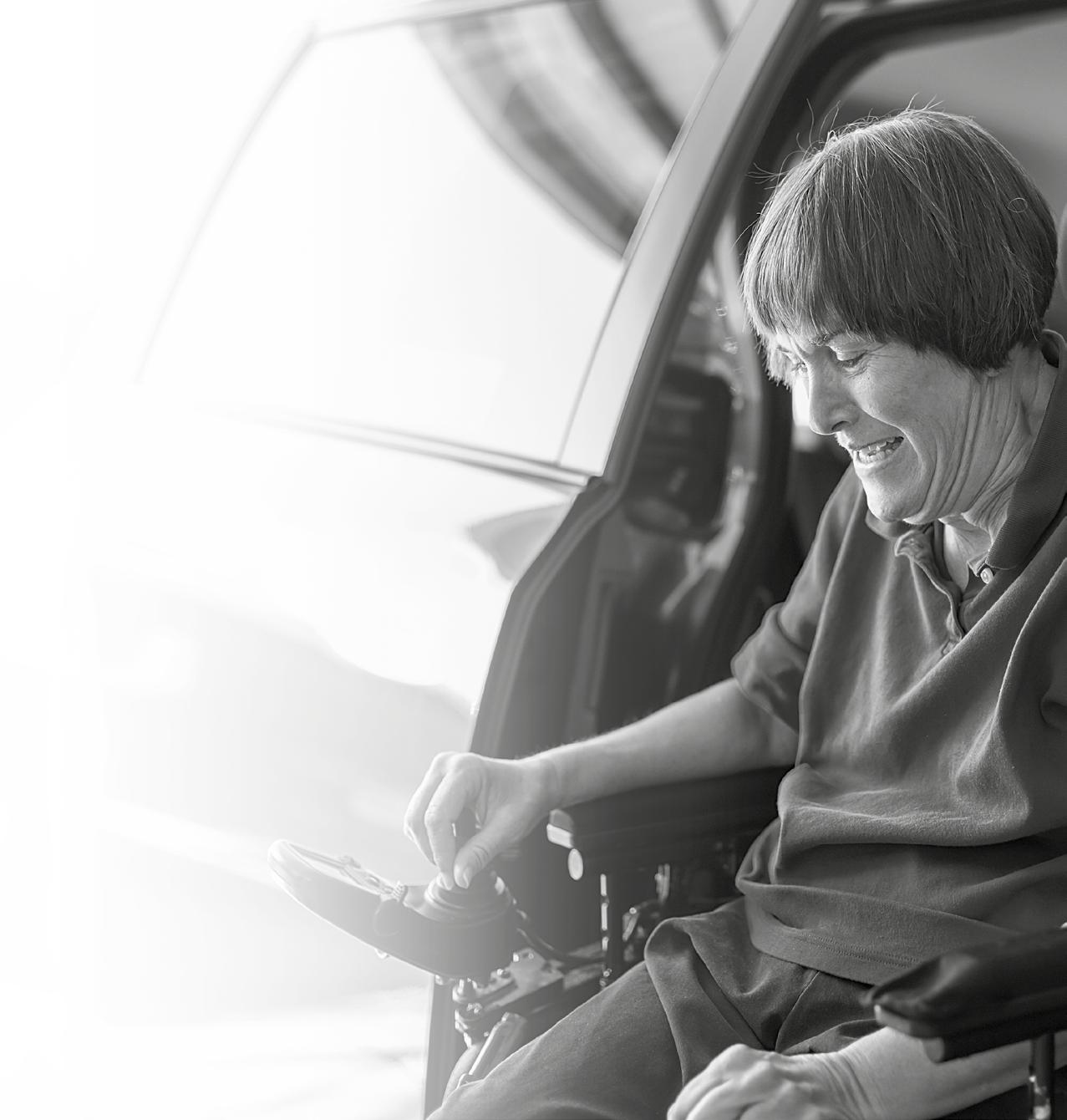
Servicing and maintenance
Full breakdown assistance
Replacement tyres (for cars, scooters and wheelchairs) and batteries (for scooters and wheelchairs)
Windscreen repair or replacement
60,000 mileage allowance over three-year for cars; 100,000 for WAVs over a five-year lease
Vehicle adaptations also available, many at no extra cost
Insurance for up to three named drivers for cars and WAVs
Annual Car Tax
Electric car charging point or access to a BP Pulse network


Did you know…. As of March 2025, there are currently 860,000 people across the UK enjoying the benefits of the Motability Scheme. The following items are included in the worry-free package:
A brand-new car, powered wheelchair or scooter every three years, or wheelchair accessible vehicle (WAV) every five years
All cars, scooters and powered wheelchairs provided under the Motability Scheme are leased to customers by Motability Operations Ltd who operate the scheme under contract to Motability Scheme. Both Motability Scheme and Motability Operations Ltd are authorised and regulated by the Financial Conduct Authority.
Motability Operations Ltd is a company responsible for the finance, administration and maintenance of motability cars, scooters and powered wheelchairs.
If you receive either the higher rate mobility component of Disability Living Allowance (DLA), the enhanced rate of mobility component of Personal Independence Payment (PIP), the War Pensioners’ Mobility Supplement (WPMS) or the Armed Forces Independence Payment (AFIP) you may be eligible to join the Motability Scheme, although you must have at least 12 months’ award length remaining.
You can get a 50% reduction in the cost of your vehicle tax if you get the standard rate of mobility component of PIP.
Parents and guardians can order a car on behalf of a child aged three and above who is receiving the higher rate mobility component of DLA.
Attendance Allowance cannot be used to lease a car through Motability Scheme.
The Motability Scheme uses your mobility allowances towards funding the leasing of a car, a powered wheelchair or scooter through a local accredited dealership or premier partner.
There are over 4,500 Motability Scheme accredited dealerships across the UK and over 900 eligible models (approximately 34 car manufacturers currently involved with the Motability Scheme). The accredited dealerships prioritise disabled customers and urgent repairs, as well as providing knowledge of the Motability Scheme and wheelchair access. In fact, all of
the accredited dealerships have least one Motability Scheme specialist who can help you find the right car for your needs.
Most manufacturers offer nil or low deposits through the Motability Scheme, although offers change quarterly, so we would recommend that you liaise with your local Motability Scheme premier partner to find the best deal for your needs.
The Motability Scheme has a wide range of cars to choose from and there are three pricing options:
Cars that cost less than your mobility allowance, meaning you keep any money left over.
Cars costing the same as your mobility allowance, so that you swap your allowance for the car of your choice.
Cars that use your full mobility allowance and also require an advance payment, so you can increase your choice further by paying a one-off upfront payment.
Cars are available on a three-year lease with a mileage allowance up to 60,000.
if you find transferring from your wheelchair into a standard car and storing your wheelchair difficult, a WAV could make travelling a lot easier for you. WAVs are vehicles that have been converted by specialists so that wheelchair users can travel in them while remaining in their wheelchair, either as a passenger or a driver.
Brand new WAVs are available on a five-year lease with a mileage allowance up to 100,000. A limited number of nearly new WAVs are available on a three-year lease with a mileage allowance up to 60,000
Nearly new WAVs come with the same all-inclusive worry-free lease package and are often a more affordable way to lease a WAV on the Motability Scheme.
A new payment was announced for people who ordered a car or WAV on or before the 3rd January 2025. If you are eligible then you will receive a oneoff payment of £750 called the New Vehicle Payment. You can choose to have this sent directly to your dealer to help towards your Advance Payment, or have this paid in full to you after you get your vehicle. If you ordered your car or WAV after the 4th January 2025 then you are not eligible for this payment.
You will receive back some money at the end of your lease if you return your car back in good condition. When you hand your car back to the dealership, they will take photos and a brief description of the condition of the car. If your vehicle shows no sign of serious damage, you should be eligible for this payment. The amount you receive depends on the length of your agreement, but it is currently £250 for a thee-year lease and £350 for a five-year lease. (You will only receive this payment if you did not request the £600 that was paid during Covid-19 to customers before the end of their lease).
Accounting for around 12% of all new cars in the UK, Motabilty Scheme has the power to negotiate better deals on finance, the purchase price of cars,
A choice of options powered wheelchairs and scooters, insurance, breakdown recovery services and regular maintenance.
You can lease a new car from an extensive list of vehicles on a threeyear contract hire lease; a hire purchase scheme is also available. Wheelchair Accessible Vehicles (WAVs) are available to travel in as a passenger or driver on a five-year lease.
When you receive a brand-new car through Motability, it will include insurance, servicing and maintaining, full breakdown assistance, 60,000-mileage allowance over three years for standard cars (100,000 for WAVs), tyre repair and replacement, MOTs and road tax, a range of adaptations where needed and up to two named drivers for cars and WAVs.
Adaptations available through the Motability Scheme are designed to make your experience of driving as safe and comfortable as possible. They can help you with vehicle access, equipment loading, and driving, including steering, braking and acceleration. There are currently around 500 adaptations available, many of these are available at no extra cost when fitted at the start of your lease.
You can find a full list of available adaptations on the Motability Scheme website.
Vehicles that are specially converted so a wheelchair user can travel either as a passenger or a driver without needing to transfer out of their wheelchair.
Size, shape and design of WAVs will vary depending on the original vehicle that is used for the conversion and the company that converts it.

Did you know….There are 16 million disabled people in the UK, 11% of children are disabled, 23% of working age adults are disabled and 45% of pension age adults are disabled.
We would always recommend that you visit your local Motability Scheme dealership before committing to a specific car. To make the most out of your visit:
Look at the cars and WAVs section of the Motability Scheme website to see what’s available for your needs and budget
Take your mobility aids with you, so you can check the car for size and accessibility
Use Motability Schemes checklist for tips (available for download from the Motability Scheme website)
Arrange to take a test drive
Fill out the Motability Scheme Suitability Questionnaire
Find out the expected delivery time
Ask questions
If your lifestyle is more suited to short journeys and you can travel fairly independently, a scooter or powered wheelchair could help with your mobility.
There are over 500 products to choose from, ranging from small boot scooters to large road ready scooters for going longer distances and carrying heavier loads. The majority of scooters and wheelchairs cost less to lease than your allowance so your remaining allowance is paid directly into your bank.
A new payment was announced for people who order a scooter or powered wheelchair on or before the 3rd Jan 2025. If you are eligible then you will receive a one-off payment of £100 called the New Product Payment, which you will receive within a few days of getting your new product. If you ordered your product on or after the 4th Jan 2025 then you are not eligible for this payment.
When you reach the end of your lease you will receive a one-off payment of £100. This will be paid either directly in your bank account or can be paid via a cheque. You will receive this payment after you hand back your wheelchair or scooter.
It is possible to obtain a brand new scooter or powered wheelchair on a three-year lease through the Motability Scheme. (Custom-made wheelchairs are available on a fiveyear lease).
You will also receive loss and damage protection for your product, insurance, breakdown assistance, tyre and battery replacement, service, maintenance and routine repairs.
The Blue Badge Scheme provides a national arrangement of on-street parking concessions enabling people with severe walking difficulties who travel as either drivers or passengers to park close to their destinations. A Blue Badge is free In Wales. You will automatically qualify for a badge if you are over 3 years of age and meet at least one of the following criteria:
Receive the higher rate of the mobility component of Disability Living Allowance
Receive War Pensioners Mobility Supplement
Receive the Personal Independence Payment for being unable to walk further than 50 metres that means a score of 8 points or more under the ‘moving around’ activity of the mobility component
Have been both awarded a lump sum benefit at tariffs 1-8 of the Armed Forces and Reserve Forces (Compensation) Scheme and certified as having a permanent and substantial disability which causes inability to walk or very considerable difficulty in walking
Receive the mobility component of Personal Independence Payment and have obtained 12 points specifically for descriptor E under the ‘planning and following journeys’ activity, on the grounds that you are unable to undertake any journey because it would cause you overwhelming psychological distress.
Are registered blind (Severely sight impaired)
You may also be eligible for a Blue Badge if one or more of the following apply:
you cannot walk at all you cannot walk without help from someone else or using mobility aids you find walking very difficult due to pain, breathlessness or the time it takes walking is dangerous to your health and safety
you have a terminal illness, which means you cannot walk or find walking very difficult and have a SR1 form
you have a severe disability in both arms and drive regularly, but cannot operate pay-anddisplay parking machines
you struggle severely to plan or follow a journey
you find it difficult or impossible to control your actions and lack awareness of the impact you could have on others
you regularly have intense and overwhelming responses to situations causing temporary loss of behavioural control
you frequently become extremely anxious or fearful of public/open spaces
The parent of a child who is less than three years old may apply for a Blue Badge if their child has a specific medical condition which means that they must always be accompanied by bulky medical equipment or they need to be kept near their vehicle at all times so that they can be treated in their vehicle or quickly taken to a hospital for treatment.
The Scheme is administered by local authorities who deal with applications and issue badges.
NB: Some London boroughs and other town centres operate their scheme, so you should always check whether the scheme is running before parking with your blue badge.
The Department for Transport has produced an explanatory booklet‘The Blue Badge Scheme: rights and responsibilities in Wales’explaining the Scheme in more detail (see www.gov.wales/sites/ default/files/publications/2024-08/ blue-badge-scheme-rights-andresponsibilities-in-wales-2023.pdf )
The Blue Badge Improvement Service came into effect in April 2012 for Wales with the aim of cutting down on abuse of the system and ensuring only those eligible for the scheme will be accepted.
To check the fees (for badges) and if you are eligible, please contact your local authority in the first instance. You may be asked to see an independent mobility assessor when you apply for a badge.
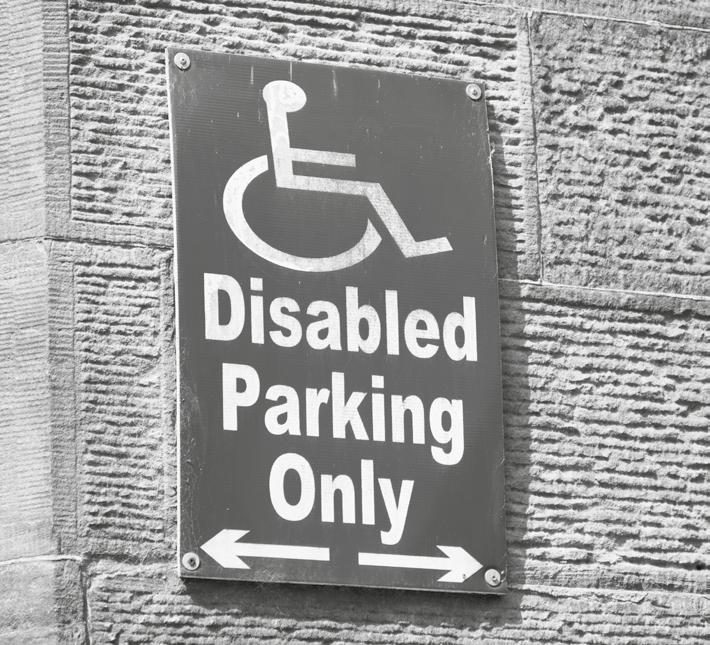
A number of battery-powered scooters or buggies are available, including small scooters that can be dismantled or folded to fit into even a small car boot. Medium scooters (class 2) are sturdier than the smaller scooters, however they are not as easy to fold. They are designed for use on pavements and only have a top speed of 4mph.
Larger road legal scooters (Class 3) are more powerful but they must be taxed. They can be used on pavements at up to 4mph and on roads at up to 8mph. They also have to have lights, a horn, etc. You do not need a driving licence or insurance to use a scooter, but personal liability insurance is recommended. You are required to register a Class 3 Scooter or wheelchair with the DVLA but will not need to show registration plates. Drivers within either class of vehicle must be disabled and aged 14 or over.

Did you know….Less than 8% of disabilities require the use of a wheelchair.
Within each category, there is a range of different models and accessories, each with their own features to meet individual needs. Scooters and buggies look very similar, the main difference being that scooters dismantle while buggies do not.
Did you know…. The majority of wheelchair users are aged 60 or more, they account for more than two thirds of all wheelchair users in the UK.

Scooters and buggies are not available through the NHS Wheelchair Service and must be bought privately. Funding may be available through various schemes or charitable sources. You can find out more through the Living Made Easy, (previously known as Disabled Living Foundation), (see Useful Contacts/Organisations).
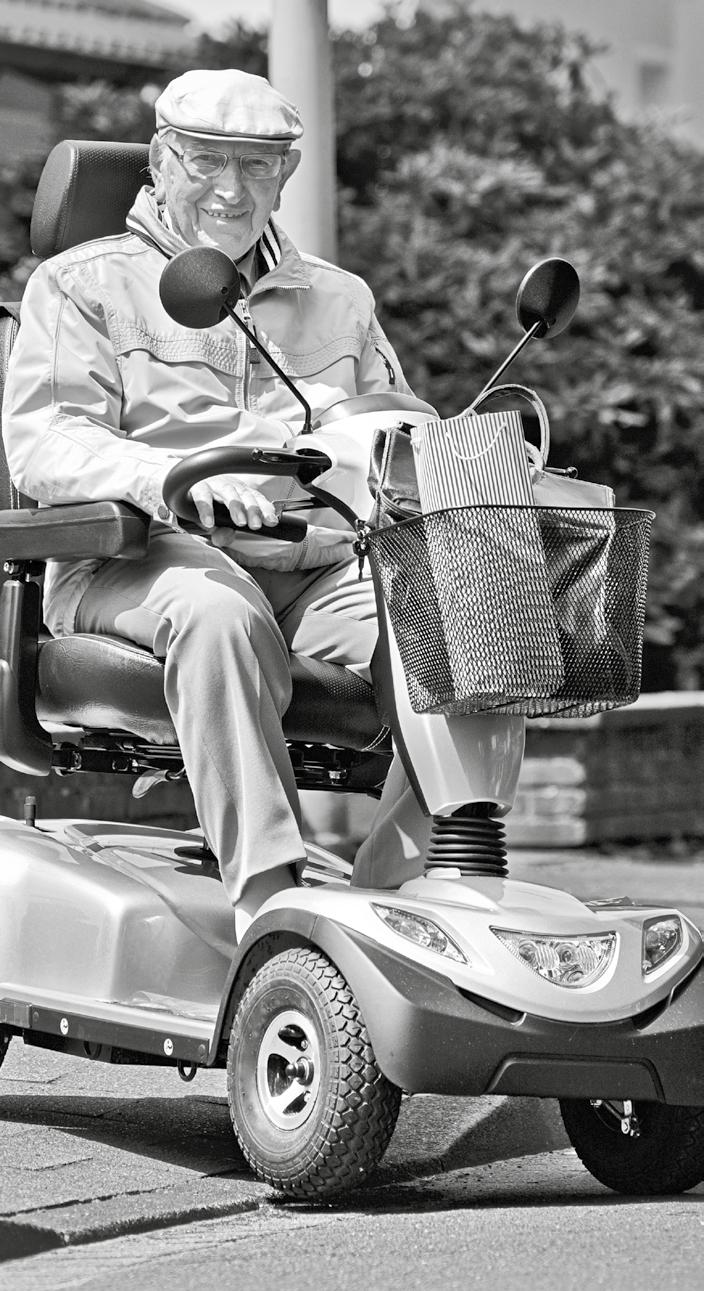
Walking equipment is generally regarded as a mobility device, and is therefore provided by a physiotherapist based at a local hospital or health centre. Referral to a physiotherapist can be made by a range of professionals including therapists, nurses, and doctors. Provision may include walking/pulpit frames, mobile frames/rollators, crutches, walking sticks, or tripods/ quadrupods.
As a rule, you should consult your GP or physiotherapist before you consider buying walking equipment privately. Some suppliers are reluctant to provide a walking device to private individuals without a letter verifying the suitability from a physiotherapist or medical practitioner.
Walking equipment is used for two purposes: first, as part of a rehabilitation programme when the user is recovering from an injury or operation, and second: as a longterm aid to mobility when the user has a permanent difficulty with walking. If you need temporary help in getting around, the NHS can provide ‘personal mobility aids’ such as walking sticks, zimmer frames, crutches and other aids on shortterm loan. The NHS is not allowed to charge for equipment, but you may be asked to pay a returnable deposit in some instances.
If your needs are more long-term, you should ask to be assessed by a physiotherapist through your local social services department.
The physiotherapist will also be able to give you more information about charities and private organisations selling mobility aids.

Did you know….Wheelchairs are used by an estimated 1.2 million people in the UK.
Before buying, try to see and use the equipment to check that it suits your needs. The Disabled Living Centres around the country have a wide range of equipment on display and all can give advice and information on walking equipment.
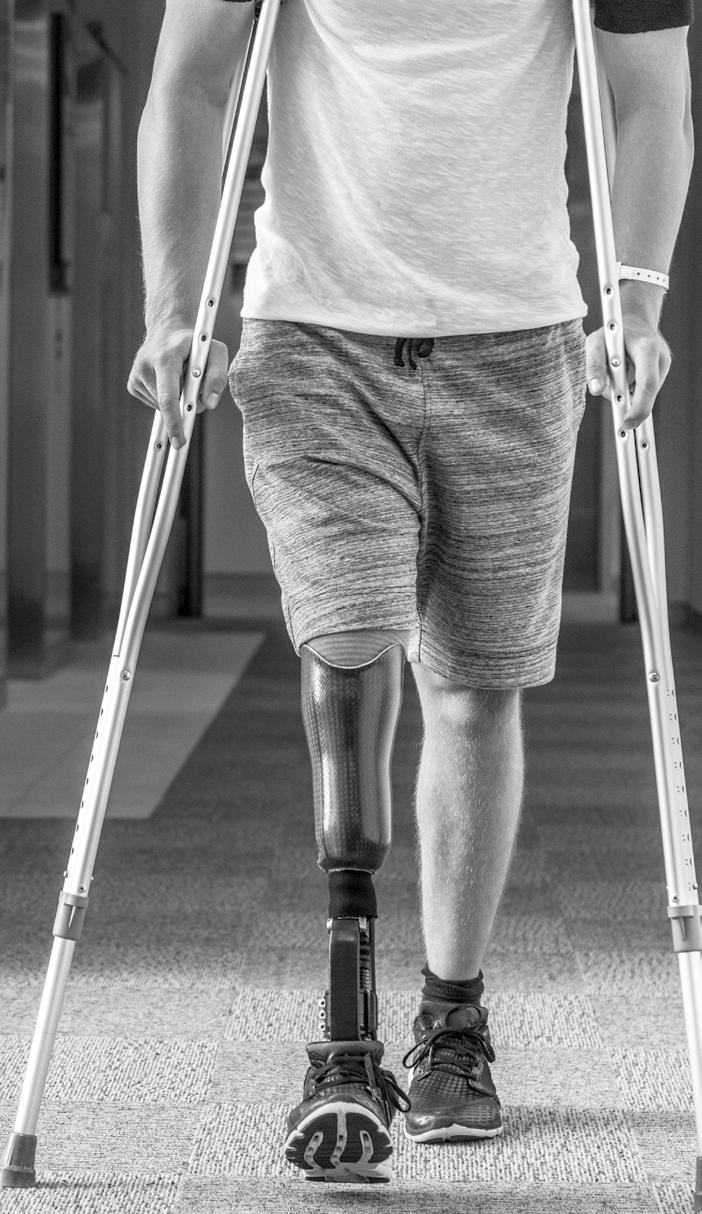
A range of wheelchairs are available to provide you with greater comfort and safety with maximum mobility, making you less reliant, where possible, on carers and home help.
There are four main ways of getting a wheelchair:
• Short-term loan - usually, when you will need a wheelchair for less than six months, you would like to try a wheelchair before you buy one or you are waiting for an assessment with your local NHS Wheelchair Service
• Long-term loan – when you are likely to need a wheelchair for more than six months
• Buying a new or second hand wheelchair
• Hiring a wheelchair
Provision of NHS wheelchairs is handled by the NHS Wales Artificial Limb and Appliance Service (ALAS). They provide assessment and equipment for essential posture and mobility needs for disabled people in Wales and operate In Cardiff, Swansea and Wrexham.
Once your need for a wheelchair has been identified by a qualified health care professional they will refer you to the Artificial Limb and Appliances Services where you will be you assessed. Assessments can be carried out at either the clinic, school, the client’s home and other settings as required and will look at your medical and lifestyle needs.
Normally, NHS wheelchairs are available on loan; various terms and conditions may apply to your loan, such as receiving a wheelchair for indoor or short-term use only, for example. The NHS will pay for servicing and repairs, so long as these are not needed because of misuse or neglect.
While you’re waiting, you may have a wheelchair loan system or contact the British Red Cross or Shopmobility, both of which offers short-term support and products for independent living and may be able to provide you with a wheelchair on a short-term basis.
The delivery, collection, repair and maintenance of equipment is handled in-house.
Depending on your individual needs you may be assessed as needing either a Standard Manual Wheelchair, Active Manual Wheelchair (this will have some adjustable settings), Tilt-in-Space Wheelchair (where a tilt facility is needed for the user to maintain sitting balance and/or relieve pressure), Powered Wheelchair (either an indoor or outdoor model
only, or one for use in both environments), or in some situations more than one wheelchair.
Usually, the NHS Wheelchair Service does not cover electric outdoor wheelchairs, electric scooters or specialist sports wheelchairs, for example, and you will probably have to buy these privately. It may be possible to arrange the loan of more than one wheelchair if it is necessary, for example, one for using at home and the other for use at work.
Your local wheelchair service centre may be able to offer advice to you or a relative/carer on loading your wheelchair into a car or other vehicle and on ways in which you can travel in a vehicle whilst in your chair, if necessary.
You may only need a wheelchair for a limited period, perhaps because of an accident or other circumstances.
The British Red Cross or ShopMobility UK provide wheelchairs and other equipment on a temporary basis through its short-term support for independent living. You can buy equipment from the British Red Cross or ShopMobility UK mobility range; this includes walkers, shoppers, walking frames, walking sticks and wheelchairs.
You can find more details about the service at www.redcross.org.uk or www.shopmobilityuk.org
If you are not eligible for a personal wheelchair budget or you are unhappy with the chairs you have been offered, you can choose to rent or buy a wheelchair yourself. Voluntary organisations and charities such as the British Red Cross or Shopmobility may work in partnership with NHS Wheelchair Services to provide a greater choice of wheelchairs. You may also choose to rent or buy through a private company.
Before buying, it is advisable to consult one of the trade associations that monitor its members’ products and practices. One such association is the British Healthcare Trades Association (BHTA), which represents over 400 companies in the healthcare and assistive technology industry. (see Useful Contacts/ Organisations Section for contact details). The BHTA can provide information about mobility vehicle distributors as well as other useful information. They currently publish a series of free ‘Get Wise’ leaflets that may be of particular interest when choosing mobility options.
It is worth noting that organisations, such as Whizz-Kidz and Go Kids Go!, provide wheelchair skills training.
If you use or need to use a wheelchair, are looking for work or are in work and having difficulties in relation to your disability, you should contact your local Jobcentre Plus Office and ask to speak to a Disability Employment Advisor (DEA).

Did you know….Some 5.53 million disabled people are in work.
The DEA will be able to give you advice about:
• Equipment you need for the workplace such as lightweight, powered or elevated wheelchairs
• Adaptations to the premises if possible
• Information about job vacancies and employer advocacy
• Providing a support worker in the work place
They will also be able to tell you more about the ‘Access to Work Scheme’, which you may find useful (see www.gov.uk for more information about ‘Access to Work’).

How a Homecare Organisation can help
If you have problems with your mobility, you may need help with some of your daily activities, such as doing your cleaning, shopping or driving, as well as personal care like washing or using the toilet.
Homecare is often the first choice for people who need help to lead an independent life because the level of care provided is flexible and can enable you to stay in the comfort and security of your own home.
Before you begin to consider finding help, it is essential that you receive a care needs assessment. Your local authority arranges these, so you will need to approach its Social Care Department in the first instance or use you can use the NHS Wales website to search for your local social service department. A specialist, often an occupational therapist, will visit you at home to assess your individual needs. It could be that your needs vary but even if they are visiting you on a good day, it’s important you bring to their attention all the practical tasks you find difficult to do without help. How this assessment is carried out depends on the arrangement in operation in your area.
Whatever arrangements are put in place, they will be reviewed, generally after three months, then on a yearly basis. In addition
to Homecare services accessed through your local authority, there are a number of private Homecare agencies. It is best to explore all of your options carefully, contacting your local authority in the first instance, or organisations such as the Homecare Association.
(www.homecareassociation.org.uk)
What services does a Homecare Agency offer?
The aim of homecare agencies is to provide care services that enable people to maintain their personal independence, comfort and contact with their local community within their own home. The level and type of care you receive can range from a small amount of support (half an hour a week) to several hours a day, or even 24-hour live-in care, depending on your individual circumstances. You can engage the services of a homecare agency on a temporary basis, intermittently or long-term.
Homecare agencies can typically provide carers who are able to give you practical support with your daily chores, such as cleaning, shopping, banking or paying bills. They may also provide a sitting service or help with preparing your meals.
You can request carers trained to give personal care, such as help with going to the toilet, bathing or dressing, as well as carers who can perform medical tasks, such as administering your medication, giving injections or changing a catheter. A homecare agency usually has carers who are able to drive for you or provide you with help getting around.
You can arrange for a carer to come into your home at specific times, for example, to help you get out of bed in the morning or go to bed at night, or to accompany you to a hospital or doctor’s appointment. Homecare agencies are strictly regulated, and homecare workers are required to undergo initial training to make sure that they are able to provide a good standard of care in a person’s home.
Many care workers go on to achieve further recognised qualifications in care. In the UK, all homecare workers are required to undergo a criminal record disclosure.
Homecare agencies are required to register with their statutory regulator if they provide personal care, and will be expected to undergo regular inspection. These agencies are also required to comply fully with health and safety legislation in order to identify and minimise risks to people receiving care.
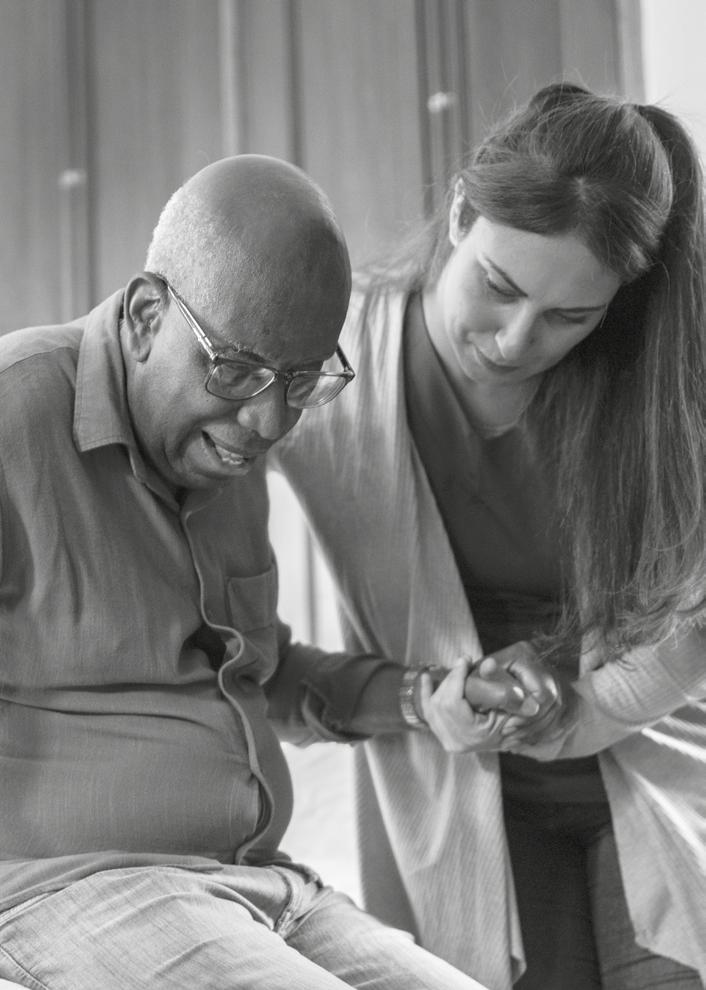
Did you know….. Lots of other attractions such as museums, zoos and National Trust sites offer discounts for carers but don’t advertise them; it’s always worth giving the venue a ring and asking before you go.

Once you have an agreed assessment, you have three ways of arranging homecare (sometimes called home support or home help).
1
Your local council provides the carer, in which case everything is arranged for you.
2
You ask an agency to find you the appropriate carer. You still have to find the agency but all you need to do after that is pay the agency.
3
You find your own carer. This gives you flexibility, but also more responsibility since you become the carer’s employer.
The system of direct payments now in operation allows you independence in using methods two or three but does involve more responsibility and work for you or your family.
How can you find the right agency for you?
All carers and homecare agencies in the UK have to be registered. You can find details of appropriate agencies on the following websites:
Care Inspectorate Wales (www.careinspectorate.wales)
Homecare Association (www.homecareassociation.org.uk)
The Care Inspectorate Wales carry out an inspection programme of all agencies offering homecare services.
How can I find my own carer?
You can ask your local council if they hold any information on care workers in the area or you can place advertisements in shops, supermarkets, voluntary organisations, local Jobcentres or newspapers. Help in drawing up advertisements and considering all the implications of employing your own carer is available on the Gov website (www.gov.uk). In particular, they draw attention to the implications of Tax and National Insurance and Employers Liability Insurance. You can also ask your local social services department to help you with the paperwork.
You can find a guide to drawing up an employment contract on the Gov website (www.gov.uk/employmentcontracts-and-conditions).
Age Cymru publishes a useful factsheet (No 46, Paying for care and support in Wales at home) on their website (last updated July 2025).
If you are worried about having an accident or falling ill while you are in your own home alone, community alarms provide emergency access that is staffed 24 hours a day, 365 days a year.
The community alarm is connected to your telephone line and can be activated via a pendant worn around the neck or a wrist band. They provide reassurance to your family and friends that help, if needed, is only a touch of a button away.
Telecare systems are a range of simple sensors that either raise an alarm or act as a reminder to help to keep you safe and independent in your own home, they include items such as: door sensors, movement sensors, medication reminders and
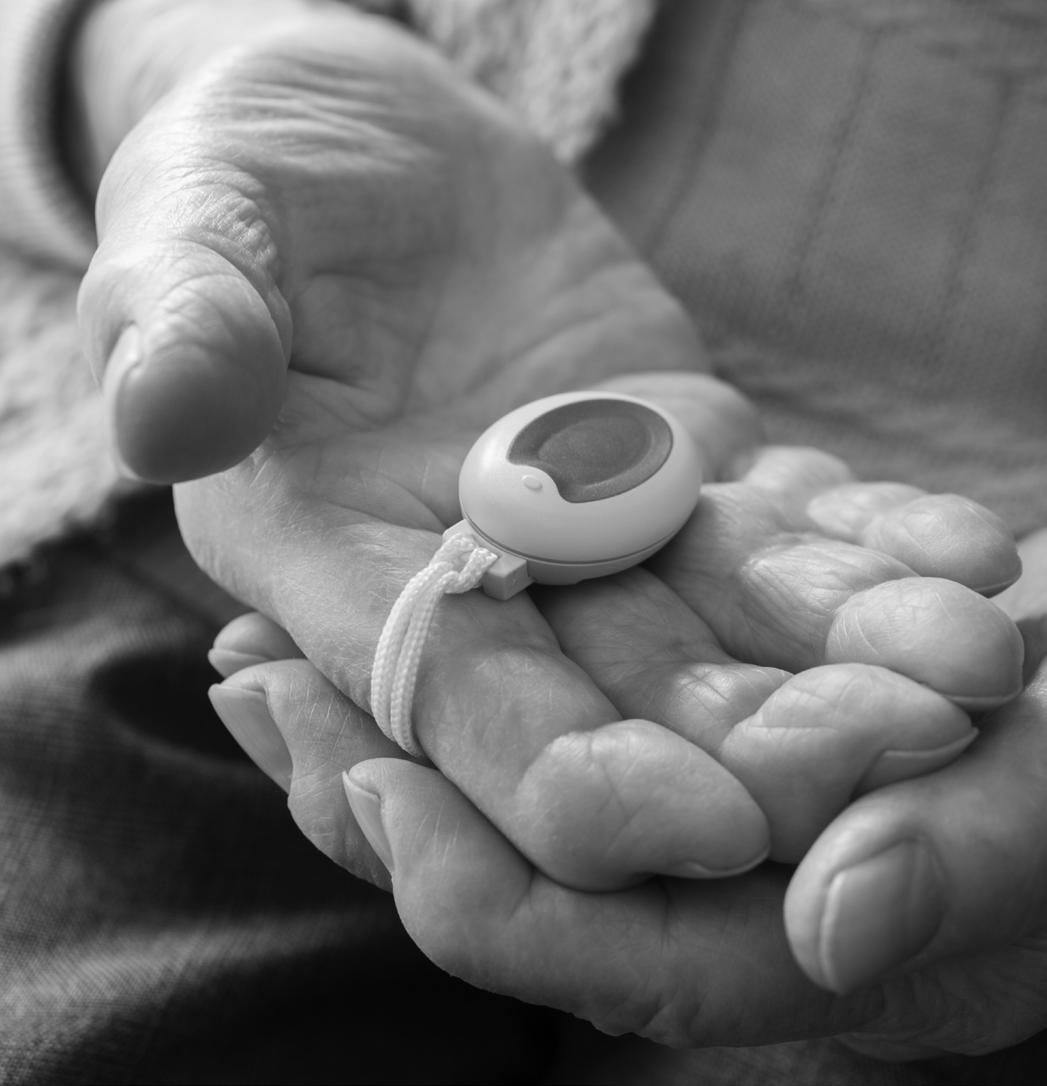

As someone with a disability or illness (physical or mental) that restricts your mobility, you may be able to claim one or more of the benefits and entitlements. Although this will depend on your individual circumstances. To find out more, we would suggest looking at the Gov website (www.gov.uk).
Disability Living Allowance is being replaced by Personal Independent Payment for disabled people aged between 18 and state pension age. You can now only apply for DLA is you are under the age of 16. If you already get DLA your claim might end. You’ll get a letter telling you when this will happen and how you can apply for PIP.
Disability Living Allowance (DLA) is a tax-free benefit for anyone under the age of 16 who has care needs or issues with mobility. It is a benefit for people with a long-term illness or disability (either physical or mental) and features a Care Component (payable at three different rates – lower, middle and higher) and a Mobility Component (payable at a lower or higher rate). DLA is not means-tested but eligibility has recently changed. Personal Independence Payments have been introduced to replace DLA for people
aged 16 to state pension age.
(DLA will continue if you are under 16 or were born on or after the 8th of April 1948 and have an existing claim). If you were born after 8 April 1948 and you’re already claiming, you’ll continue to get DLA until the Department for Work and Pensions (DWP) writes to tell you when your DLA will end and invites you to apply for Personal Independence Payment (PIP).
Unless your circumstances change, you don’t need to do anything until you hear from DWP about your DLA.
If you are of state pension age and you do not currently get DLA, then you can apply for Attendance Allowance.
If you are eligible for Disability Living Allowance, you will receive the component deemed appropriate to your needs. You must have needed help for at least three months before you can claim and should expect to need help for at least a further six months (different rules apply if you are terminally ill).
The Care Component of DLA takes into account how much care you need (regardless of whether you are actually receiving it). There are different criteria for establishing which rate you should receive.
The Mobility Component of DLA considers what help you may need to be mobile and looks at whether you need someone to provide guidance or supervision when you are outside on unfamiliar routes (lower rate) or whether you have severe mobility problems.
DLA is currently paid at the following rates. (Correct as of April 2025).
Care Component -
Lowest rate £29.20 per week
Middle rate £73.90 per week
Highest rate £110.40 per week
Mobility Component -
Lower rate £29.90 per week
Higher rate £74.05 per week
• Managing your medicines or treatments
• Making decisions about money
Mobility difficulties
PIP is currently paid at the following Personal Independence Payment (PIP)
The government introduced a new allowance called Personal Independence Payment (PIP), which has replaced Disability Living Allowance (DLA) for disabled people aged 16 or over.
PIP is designed to help with some of the extra costs caused by longterm ill health or disability. What you receive will depend on how your condition affects you. When you make a claim for PIP, you will be assessed by health professionals to work out what level of support you should receive. Your award will be assessed on a regular basic.
NB: The Motability Scheme will work with PIP in the same way as it does with DLA.
PIP is made up of two parts, daily living part and mobility part.
Daily living difficulties
You may get the daily living part of PIP if you need help more than half of the time with things like:
• Preparing or eating food
• Washing, bathing and using the toilet
• Dressing and undressing
• Reading and communicating
• Engaging with other people Daily
You may get the mobility part of PIP if you need help going out or moving around.
illness
If you have a terminal illness and are expected to live for 12 months or less, you can apply for Personal Independence Payment (PIP) under the Special Rules for End of Life (SREL).
Under these rules, you will automatically receive the enhanced rate of the daily living component, without needing a face-to-face assessment or completing all parts of the standard application.
You may also receive the mobility component (either standard or enhanced rate), but this is not automatic — it will depend on how your condition affects your ability to move around.
Other help
You or your carer might also qualify for other financial help, for example Carers Allowance, or help with housing or transport costs. If you work and get PIP, you may be eligible to claim for other benefits such as Universal Credit or ESA.
Attendance Allowance is a tax-free benefit for people over state pension age who have specific care needs because of an illness or disability (either physical or mental).
This benefit looks at the amount of care you need, regardless of whether you are actually receiving that care or not, and is not means-tested.
To be eligible for Attendance Allowance, your care should include the following:
• Frequent attention during the day in connection with your bodily functions
• Or continual supervision during the day in order to prevent substantial danger to yourself or others
• Or the need for prolonged or repeated attention during the night in connection to your bodily functions
• Or being watched for much of the night
You can claim Attendance Allowance if you have needed looking after for at least six months (this qualifying period is waived if you are terminally ill). The care help you need should cover things like bathing, eating, going to the toilet and getting dressed. It can also include help with medical treatment (e.g., administering tablets or injections, or using a kidney dialysis machine). Attendance Allowance takes into account supervision that you might need because of dizzy spells, falls or seizures.
Attendance Allowance is tax-free and paid at two rates (depending on whether you need care during the day, night, or both). The rates from April 2025 are as follows (the rate usually increases each April):
Higher rate £110.40 per week Lower rate £73.90 per week

Did you know…..Disability is more likely to affect older adults over State Pension age. They account for 45% of the disabled in the UK compared to 16% of working age adults and 6% children.
If you receive Attendance Allowance, you may also be entitled to extra Pension Credit, Housing Benefit or Council Tax Reduction.
Your carer could also get Carers Allowance if you have substantial caring needs.
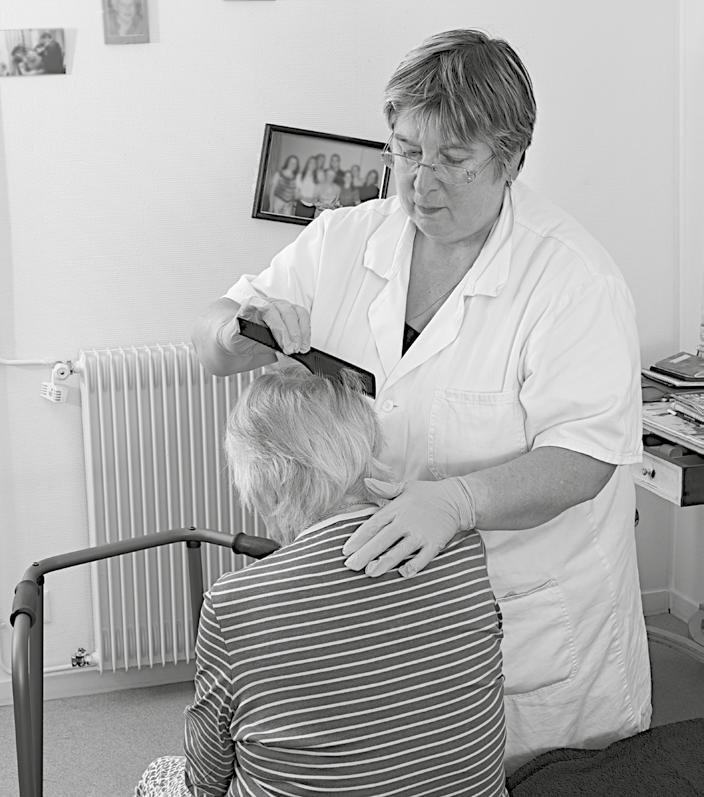

You may be entitled to receive Industrial Injuries Disablement Benefit (accidents) if you are ill or disabled because of an accident or event that happened in connection with work. The amount you may receive will depend on your individual circumstances (e.g., your age and the assessed level of your disability). If you are awarded Industrial Injuries Disablement Benefit, this may affect the other benefits you receive.
There is also an Industrial Injuries Disablement Benefit (diseases), which covers more than 70 diseases that can be caused by certain types of work. The amount you get depends on your individual circumstances.
You may be able to claim War Disablement Pension under the War Pensions Scheme if you were injured or disabled as a result of service in Her Majesty’s (HM) Armed Forces, you are no longer serving in HM Armed Forces and the claimed condition was caused by service before 6 April 2005. The amount you get depends on your individual circumstances.
Claims for disablement that occurred on or after 6 April 2005 should be made under the Armed Forces Compensation Scheme.
The amount you receive will depend on the assessed level of your disability.
The AFIP is an additional allowance that provides financial support for service personnel and veterans seriously injured as a result of service to cover the extra costs they may have as a result of their injury on or after 6th April 2005.
AFIP is an alternative payment to PIP or DLA. (You cannot get both at the same time).
To be eligible for AFIP you must be entitle to a Guarantee Income Payment (GIP) of 50% or higher through the Armed Forces Compensation Scheme.
For more information, visit Veterans UK at www.gov.uk/government/ organisations/veterans-uk.
If you need daily care and attention because of a disability and you claim Industrial Injuries Disablement Benefit or a War Disablement Pension, you can claim Constant Attendance Allowance (CAA).
The criteria you need to fulfil to receive CAA will depend on which of these two benefits you receive.
There are four different rates of Constant Attendance Allowance and it is paid at the following weekly rates
Exceptional
If you get the ‘exceptional rate’ or ‘intermediate rate’, you may also get Exceptionally Severe Disablement Allowance.
If you are caring for an ill or disabled person in their home for more than 35 hours a week, you may be entitled to claim Carers’ Allowance. However, it is worth being aware that Carers’ Allowance can cause other benefits to increase or decrease, and may affect the benefits of the person for whom you are caring.
You can claim for carers allowance if the person you care for is claiming one of these benefits:
• Personal Independence Payment daily living component.
• Disability Living Allowance - the middle or highest care rate.
• Attendance Allowance.
• Constant Attendance Allowance at or above the normal maximum rate with an Industrial Injuries Disablement Benefit.
• Constant Attendance Allowance at the basic (full day) rate with a War Disablement Pension.
• Armed Forces Independence Payment.
You may be able to get Carer’s Allowance if all of the following apply:
• You’re 16 or over.
• You spend at least 35 hours a week caring for someone.
• You’ve been in England, Scotland or Wales for at least 2 of the last 3 years (this doesn’t apply if you’re a refugee or have humanitarian protection status).
• You normally live in England, Scotland or Wales, or you live abroad as a member of the armed forces. (you might still be eligible if you’re moving to or already living in an EEA country or Switzerland).
• You’re not in full-time education.
• You’re not studying for 21 hours a week or more.
• your earnings are £196 or less a week after tax, National Insurance and expenses
• You are not subject to immigration control.
Carers Allowance is a taxable benefit, currently paid at a rate of £83.30 per week (April 2025).


Did you know…..Over 50% of people think of disability as a physical impairment.
As mentioned earlier in this guide, financial assistance towards your health and independent living may be available in the form of Direct Payments, Value Added Tax relief on equipment and services, The Welsh Government ENABLE: support for independent living and Disabled Facilities Grants (available through your local authority).
You may also be entitled to help towards health costs such as free NHS prescriptions, dental care, hospital travel costs, wheelchairs and hearing aids.
You may be able to arrange a reduction in your Council Tax Bill. If you are on a low income or claim benefits.
If you are on a low income and paying rent, you may be entitled to claim Housing Benefit towards your rent.
If you are registered blind, you are entitled to a 50% reduction on the cost of a TV licence.

Did you know……As of February 2023, there were 6.3 million people claiming an extra-cost disability benefit in Great Britian, representing 9.6% of the total population.
If you have a long-term illness or you are disabled, you may not have to pay VAT on cars and other equipment designed to help your mobility. People aged 60 and over may be able to pay a lower rate of VAT on mobility aids installed in their home.
The rules regarding VAT are complicated; therefore, we would suggest that you contact HM Revenue and Customs (see www.gov.uk) for more advice about VAT exemption applicable to your individual circumstances.
No one wants to think about how and when they will die, or what it will be like for our families without us. Although planning your funeral in advance may not be something you want to think about, there are many practical and emotional reasons why it should be a priority.
Funerals are expensive occasions and require many decisions to ensure they run smoothly. Planning your funeral long in advance of it happening can give your friends and family peace of mind at a heartbreaking time.
Taking out a ‘pre-paid’ or ‘prepayment’ funeral plan enables you to let your friends and family know what you want for your funeral. It also means that the costs are covered in advance, thereby saving your family from potential financial difficulty at an already stressful time.
The Financial Conduct Authority regulate firms that provide and arrange prepaid funeral plans. This means that your money is safe with an authorised provider and you are protected by the Financial Services Compensation Scheme should your plan provider fail and if you have a complaint against a funeral plan provider or intermediary you can refer it to the Financial Ombudsman Service.


Listed below are a number of organisations that will be able to give you more advice about meeting your mobility requirements. This is by no means an exhaustive list and you may find that there are local organisations who can tell you more about the services on offer in your area.
If you are living in England or Scotland, you are advised to read our English or Scottish edition of the Mobility Advice guide as many of the organisations listed below have a dedicated England or Scotland branch, and different rules, regulations and legislation may apply.
Write to us at:
Age Cymru, Ground Floor, Mariners House Trident Court, East Moors Road Cardiff, CF24 5TD
Friendship Calls - If you’re aged 70 or over and live in Wales, you can register for a free friendship call.
Bringing together healthcare and assistive technologies manufacturing, suppliers, distributors and service providers to support health and care systems and protect consumers interests.
Tower Bridge Business Centre
46-48 East Smithfield, London E1W 1AW

Age Cymru Advice: 0300 303 44 98 Monday to Friday - 9am and 4pm
Email: advice@agecymru.org.uk www.agecymru.wales
Tel: 020 7702 2141
Email: info@bhta.com www.bhta.com
British Red Cross
UK Office, 44 Moorfields, London EC2Y 9AL
British Red Cross branches have a a supply of products for loan to aid independent living.
General Enquiries: 0344 871 11 11
Support Line: 0808 196 3651
Email: contactus@redcross.org.uk www.redcross.org.uk Facebook/X @BritishRedCross
Unit 5, Ynys Bridge Court, Cardiff CF15 9SS
Carers Wales part of Carers UK offers advice and support for carers. You are a career if you look after a relative, friend or neighbour because they are frail, ill or have a disability.
Tel: 029 2081 1370
Advice line: 0808 808 7777 Mon- Fri 9am - 6pm

Email: advice@carersuk.org www.carersuk.org/wales X / Facebook
The CAB provides free confidential and independent advice from over 3,400 locations throughout the UK. Their website provides contact details of a local office near you.
Advicelink Cymru: 0800 702 2020

For free, independent, confidential and impartial advice or find your local bureau at www.citizensadvice.org.uk/wales
Community Transport Association (CTA)
91 Princess Street, Manchester, M1 4HT
UK’s only specialist advice and support service to groups and organisations delivering community-led transport in the UK.
General Enquiries: 0161 351 1475 or email: info@ctauk.org
Advice Services: 0345 130 6195 or email: advice@ctuk.org www.ctauk.org
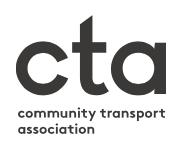
Disability Wales/Anabledd Cymru Sbarc/Spark Maindy Rd, Cardiff, CF24 4HQ
Disability Wales (DW) is the national association of Disabled People’s Organisations (DPOs) striving to achieve rights, equality and independent living of disabled people in Wales.
Folly Farm, Upgate Street, Carleton Rode, Norfolk, NR16 1NJ
Supporting disabled drivers, passengers and blue badge holders.
Great Minster House, 33 Horseferry Road, London SW1P 4DR
Help with assisted driving, accessibility and independent living. To find your nearest mobility centre visit their website
Tel: 029 20887325
Email: Info@disabilitywales.org www.disabilitywales.org
Tel: 01508 489 449
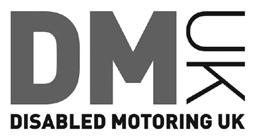
Email: info@disabledmotoring.org www.disabledmotoring.org
Switchboard: 0300 330 3000 (8.30am – 5.30pm)
Email: Via the online contact form www.gov.uk/government/organisations/ department-for-transport
Tel: 0800 559 3636
Email: info@drivingmobility.org.uk www.drivingmobility.org.uk
Benefits and financial support if you are disabled or have a health condition.
HM Revenue & Customs
Mercury Way, 117 Waterloo Road, London, SE1 8UL
The Homecare Association is the UK’s membership body for homecare providers. Together we ensure that homecare is valued so that all of us can live well at home and flourish within our communities.
www.gov.uk/financial-help-disabled
At Switchboard we provide an information, support and referral service for lesbians, gay men and bisexual and trans people – and anyone considering issues around their sexuality and/or gender identity.
www.gov.uk/government/organisations/ hm-revenue-customs
Helpline: 020 8661 8188

Email: enquiries@homecareassociation.co.uk www.homecareassociation.co.uk
Tel: 0800 0119 100 Open 10am - 10pm every day
Email: hello@switchboard.lgbt www.switchboard.lgbt
Impartial help, advice and information about daily living equipment, disability equipment, mobility and independent living aids for older people, disabled adults or children, their family and carers.
Mind offers confidential help on a range of mental health issues. They also provide a special legal service to the public, lawyers and mental health workers. To find your local Mind, go to their website. There are 16 Mind locations in Wales
write to: PO Box 7044, Tadley, Hampshire RG24 4PL
Mobility Trust provides powered wheelchairs and scooters for UK residents who have severe disabilities and who cannot obtain such equipment through other means.
Registered Charity number: 1070975
The Motability Scheme enables disabled people to use their government-funded mobility allowance to lease a new car, scooter or powered wheelchair. As a registered charity (No. 299745), The Motability Scheme also raises funds and provides financial assistance to those who may otherwise be unable to afford the mobility solutions they need.
www.livingmadeeasy.org.uk
Mind Info Line 0300 123 3393
Support Line: 0300 102 1234
Legal Line: 0300 466 6463
Welfare Benefits Line: 0300 222 5782
Email: info@mind.org.uk www.mind.org.uk
Tel: 0118 984 2588
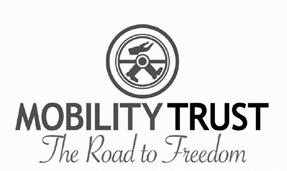
Email: mobility@mobilitytrust.org.uk www.mobilitytrust.org.uk

Explore their website to see answers to common questions that you may have about the mobility scheme services.
www.motability.co.uk
Society Building, 8 All Saints Street, London, N1 9RL
Your local volunteer bureau may offer a range of services such as shopping, visiting and gardening. Visit our website to find out more about schemes in your area.
Email: via the online contact form
For more information on how to contact us visit our website at www.ncvo.org.uk
Facebook / X
Find information and advice on health conditions, symptoms, healthy living, medicines and how to get help.
Tel: 111 (Non-emergency)
www.nhs.wales
QEF Mobility Services offers practical advice, assessment and training for those wishing to drive or increase their mobility through assistive technology, personal mobility vehicles and adapted cars. We also offer courses for driving instructors to increase their skills training people with disabilities. Additionally, there is the Try b4u Fly support service specially created to reduce the anxieties and stress that can be associated with air travel by offering assessments to work out the best aeroplane support seating and transfer options for children, young people and adults with disabilities.

Tel: 01372 841100
Email: info@qef.org.uk or via the online contact form www.qef.org.uk
Supporting people with sight loss.
RNID work with communities and partners across health, employment, research, government and more to change life for the better.
RiDC is a specialist UK consumer research and information charity that focuses on work with older and disabled people.
RiDC is accredited under The Information Standard, a Department of Health scheme to help the public identify trustworthy health and social care information easily.
RiDC has free motoring guides available in print:
• Choosing a car
• Cars for families of disabled children
• Getting in and out of a car
• Getting a wheelchair into a car
• Car controls
• Wheelchair accessible vehicles
Helpline: 0303 123 9999 Mon – Fri 8am – 9pm Sat – 9am – 1pm

Email: helpline@rnig.org.uk or via the online contact form www.rnib.org.uk Facebook/X
Information Line: 0808 808 0123
Text Message: 07360 268 988 Relay UK 18001 0808 808 0123 Live Chat via our website
Email: contact@rnid.org.uk www.rnid.org.uk Facebook/X

Tel: 020 7427 2460
Email: mail@ridc.org.uk www.ridc.org.uk Facebook@RiDCUK

Here East Press Centre, 14 East Bay Lane, E15 2GW

Helpline 0808 800 3333
Textphone: 18001 0808 800 333
Email: helpline@scope.org.uk www.scope.org.uk
c/o Driving Mobility, The Old Carriage Works, Moresk Road,Truro TR1 1DG
Shopmobility’ schemes loan wheelchairs and scooters to enable disabled people to shop independently. If you wish to hire mobility equipment, visit their website for more information.
www.shopmobility.org
Write to us at: Supporter Relations Stroke Association, 1 Sterling Business Park, Salthouse Road, Northampton NN4 7EX
At the Stroke Association we believe in life after a stroke. We support stroke survivors to make the best recovery they can.
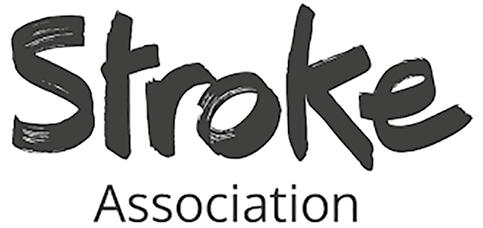
Stroke Helpline: 0303 3033 100
Email: helpline@stroke.org.uk
Supporter Relations Team Tel: 0300 330740
Email: Supporter.relations@stroke.org.uk
www.stroke.org.uk
Transport for Wales (TfW) was set up by the Welsh Government to change the way Wales travels.
Visit www.tfw.wales for further information
Turn2Us
A charitable service helping people access financial support through welfare benefits, grants and other help.
Contact us via our online contact form
www.turn2us.org.uk
Our independent assessment services are accredited by the national charity Driving Mobility. Driving Mobility is the umbrella body which oversees 20 member centres across the UK – some of which are wholly charitable organisations whilst others operate within the NHS.
South Wales – 02920 555130 North Wales – 01745 548858
www. wmdas.co.uk
Welsh Government
Cathays Park, Cardiff, CF10 3NQ
Telephone: 0300 0604400 (Monday to Friday, 8:30am to 5pm)
Email: customerhelp@gov.wales www.gov.wales
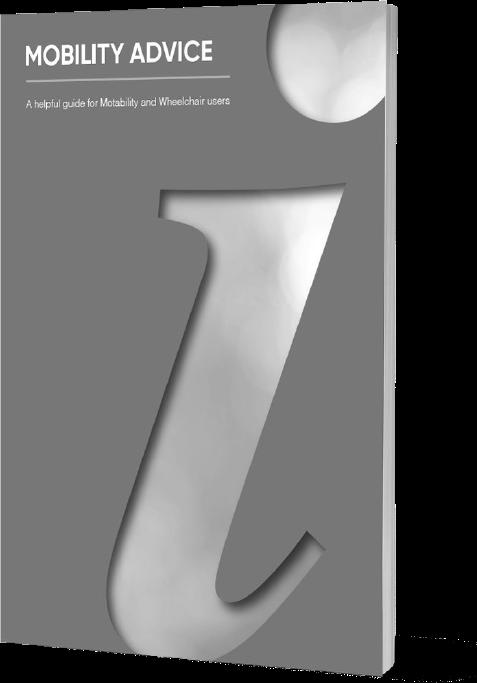
The information provided in this publication is given in good faith and is in no way connected to or affiliated with any of the organisations contained within this publication. The information supplied should not be taken as legal advice.
The content is also not intended to replace other healthcare professional advice that you may be encouraged to seek.
Professional advice should be sought where appropriate. Any rates and information contained within this publication was correct at the time of writing in July 2025.
As benefit entitlements change regularly, you are advised to contact the benefits enquiry line or your local jobcentre plus for information about current entitlements.
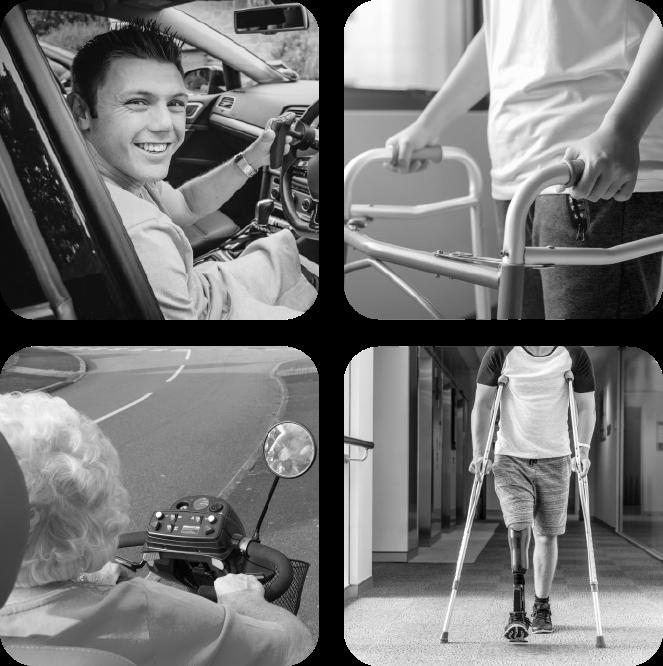
If you have a temporary or permanent disability, this guide is designed to help you discover ways to maintain your independence, improve mobility, and enjoy greater freedom. You can also scan the QR code to visit our website, where you’ll find our extensive list of helpful publications.


Back/ Advertising
Outside Back/ Advertising